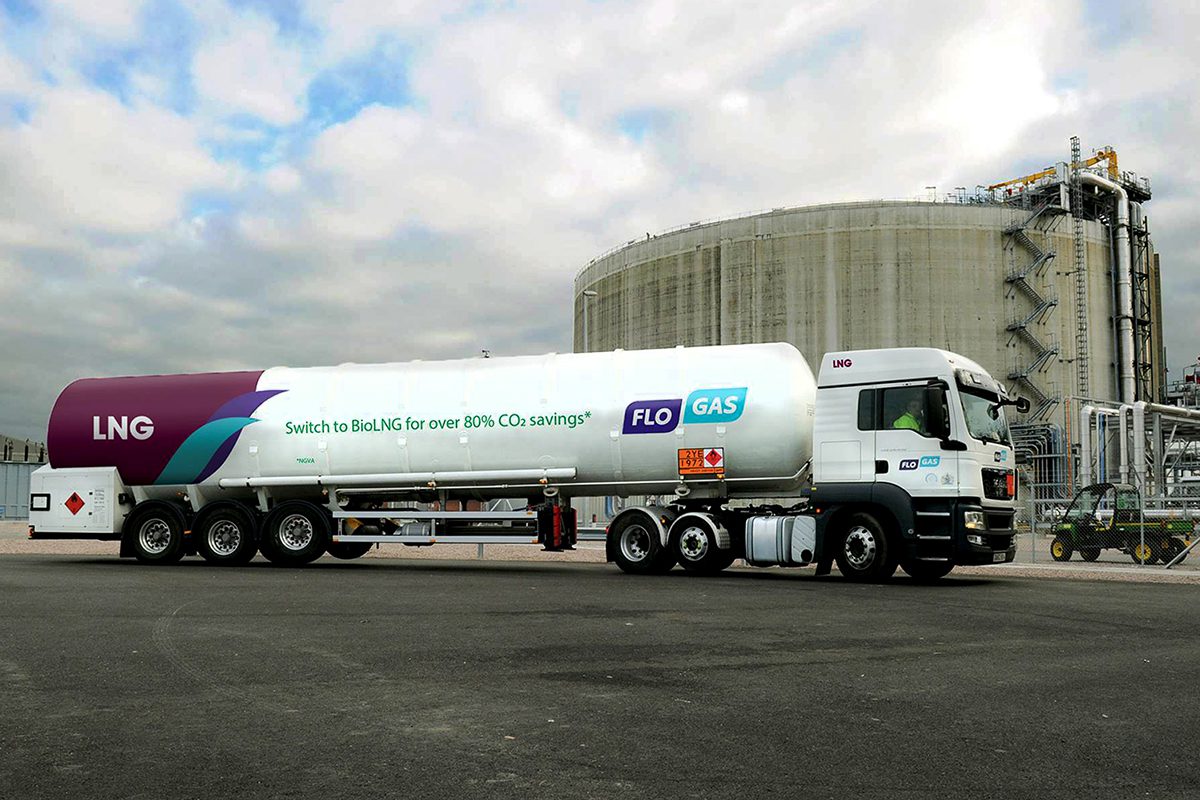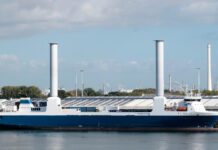
Flogas Britain – a major supplier of liquefied petroleum gas (LPG) and liquefied natural gas (LNG) – has added liquid biomethane (Bio-LNG) to its off-grid energy supply, marking what is said to be the industry’s first Bio-LNG solution for commercial and industrial operations.
Available immediately, the new Bio-LNG offering is targeted at businesses running continuous, energy-intensive manufacturing or industrial processes, as well as the transportation industry. A cleaner energy source than any other off-grid fossil fuel, companies switching to Flogas Bio-LNG can benefit from major carbon savings of more than 80%.[1]
The launch comes quickly after Flogas unveiled its 2040 Vision and ambition to supply customers with 100% renewable energy by 2040. “Adding Bio-LNG to our off-grid energy supply is a real step-change for the business and shows just how serious we are about building a lower carbon future for the UK,” says David Taylor, Head of Corporate Affairs and Innovation at Flogas. “Whilst this renewable biogas is already in its infancy across the transport industry, we’re the very first to bring it to off-grid commercial and industrial companies – and we’re delighted to be leading the way.
“We already supply tens of thousands of tonnes of conventional LNG each year for industrial use, but as the UK moves towards a commitment to cut emissions to ‘Net Zero’ by 2050, Bio-LNG is perfectly placed to fuel industry. Not only does it provide a reliable, powerful and abundant fuel source, it will radically improve a company’s carbon footprint too. This is a major draw, as it helps businesses meet strict government carbon and pollutant reduction targets.”
Bio-LNG is a highly sustainable version of LNG with almost the exact same chemical makeup. It is produced during the anaerobic digestion (AD) process, which breaks down organic matter (such as food, sewage sludge or animal waste) to produce methane-rich biogas. This makes Bio-LNG a renewable energy source, one that produces far few carbon emissions than other off-grid fuels and negligible pollutants.
“The good news is, businesses already running their operations using LNG can switch to Bio-LNG instantly,” says David Taylor. “By using certified Bio-LNG on a mass balance basis, there’s no need for set up changes or costly downtime, and businesses can enjoy immediate carbon savings. Green gas is injected into the grid as biomethane – sourced mainly from Anaerobic Digestion plants – with each unit displacing the equivalent amount of conventional gas. We then provide customers with green gas certificates, which track the biomethane through the supply chain, providing certainty from production to end use.”
Flogas’ Bio-LNG offering is also available to businesses currently using other fuels. With an expert team in place, it provides bespoke solutions for new customers and manages the whole process – from civil works through to installation and commissioning of new equipment. They also benefit from Flogas’ reliable LNG fleet – one of the largest, most technically-advanced of its kind.
“At Flogas we’re so convinced by the benefits of Bio-LNG that we’ve just added new Bio-LNG trucks to our own fleet,” adds David Taylor. “These trucks are just one of many positive steps the business is taking, as we move towards a cleaner, greener future.”
For more information on Flogas Bio-LNG or any other Flogas offering, visit www.flogas.co.uk or call 0800 574 574.
Notes
[1] Transport applications: Bio-LNG carbon savings compared to conventional diesel engines (source: NGVA)







